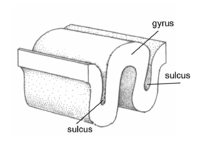
Postpartum increases in cerebral edema and inflammation in response to placental ischemia during pregnancy
Sign Up to like & getrecommendations! Published in 2018 at "Brain, Behavior, and Immunity"
DOI: 10.1016/j.bbi.2018.03.028
Abstract: Reduced placental blood flow results in placental ischemia, an initiating event in the pathophysiology of preeclampsia, a hypertensive pregnancy disorder. While studies show increased mortality risk from Alzheimer's disease, stroke, and cerebrovascular complications in women… read more here.
Keywords: placental ischemia; pregnancy; posterior cortical; cerebral edema ... See more keywords

Natural killer cells mediate pathophysiology in response to reduced uterine perfusion pressure.
Sign Up to like & getrecommendations! Published in 2017 at "Clinical science"
DOI: 10.1042/cs20171118
Abstract: Preeclampsia is associated with hypertension, small-for-gestational-age babies, and increased cytolytic natural killer (NK) cells. The specific role of cytolytic NK cells in the pathophysiology of preeclampsia has not been clearly defined. We hypothesized that Reduced… read more here.
Keywords: anti; pathophysiology; rupp; anti asgm1 ... See more keywords

Vitamin D Supplementation Prevents Placental Ischemia Induced Endothelial Dysfunction by Downregulating Placental Soluble FMS-Like Tyrosine Kinase-1.
Sign Up to like & getrecommendations! Published in 2017 at "DNA and cell biology"
DOI: 10.1089/dna.2017.3817
Abstract: Maternal vitamin D deficiency in pregnancy has been associated with an increased risk of preeclampsia. Vascular endothelial dysfunction is a major phenotype of pregnancies with preeclampsia, contributing to increased maternal hypertension and proteinuria. We sought… read more here.
Keywords: rupp; vitamin supplementation; sflt; endothelial dysfunction ... See more keywords

Treatment with the flavonoid, luteolin, attenuates the development of placental ischemia-induced hypertension in pregnant rats
Sign Up to like & getrecommendations! Published in 2023 at "Physiology"
DOI: 10.1152/physiol.2023.38.s1.5733831
Abstract: Preeclampsia (PE) is a disease of hypertension and systemic vasoconstriction during pregnancy. Placental ischemia is implicated in PE by release of pro-hypertensive factors, like soluble Fms-like tyrosine kinase-1 (sFlt-1). Recently, we identified the bioflavonoid, luteolin,… read more here.
Keywords: rupp; luteolin; physiology; treatment ... See more keywords

Abstract P208: Imaging The Longitudinal Reduction In Placental Ischemia In Response To Therapeutic Intervention For Preeclampsia
Sign Up to like & getrecommendations! Published in 2020 at "Hypertension"
DOI: 10.1161/hyp.76.suppl_1.p208
Abstract: Preeclampsia is believed to be induced by abnormal vascular remodeling and the resulting placental ischemia during early development. Sildenafil, a phosphodiesterase-5 inhibitor, reduces the maternal symptoms of preeclampsia by promoting angiogenesis and enhancing NO-mediated vasodilation.… read more here.
Keywords: placental ischemia; response; rupp; preeclampsia ... See more keywords

Abstract 103: Il-33 Supplementation Improves Vascular Function And Maternal Hypertension In Response To Placental Ischemia
Sign Up to like & getrecommendations! Published in 2022 at "Hypertension"
DOI: 10.1161/hyp.79.suppl_1.103
Abstract: Preeclampsia (PE), a leading cause of maternal and fetal morbidity and mortality, is a hypertensive pregnancy disorder with end-organ damage that develops after 20 weeks of gestation. PE is characterized by chronic immune activation, endothelial… read more here.
Keywords: supplementation; hypertension; rupp; maternal hypertension ... See more keywords

Critical Role for Macrophages in the Developmental Programming of Pancreatic β-cell Area in Offspring of Gestational Hypertension.
Sign Up to like & getrecommendations! Published in 2022 at "Diabetes"
DOI: 10.2337/db22-0404
Abstract: Preeclampsia is a pregnancy-specific complication with long-term negative outcomes for offspring including increased susceptibility to type 2 diabetes (T2D) in adulthood. In rat Reduced Uteroplacental Perfusion Pressure (RUPP) model of chronic placental ischemia, maternal hypertension… read more here.
Keywords: rupp; hypertension; area; pancreatic cell ... See more keywords